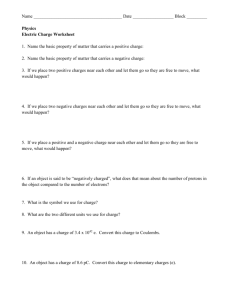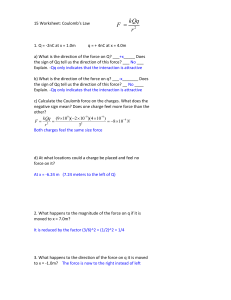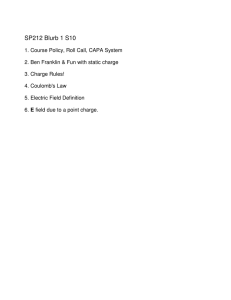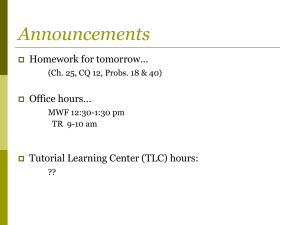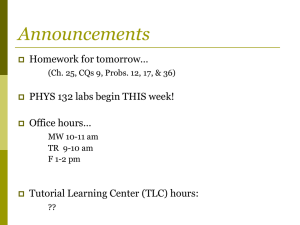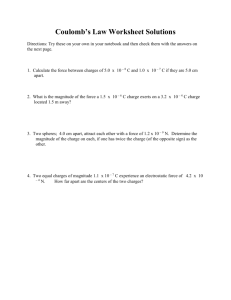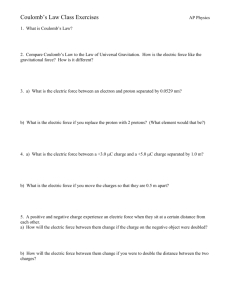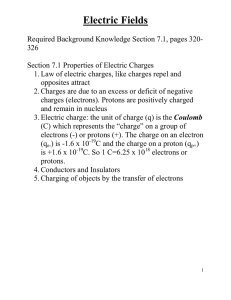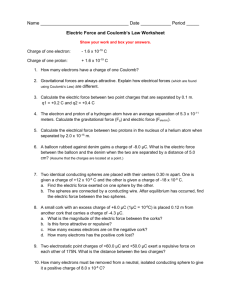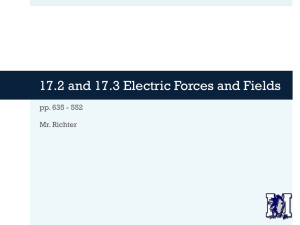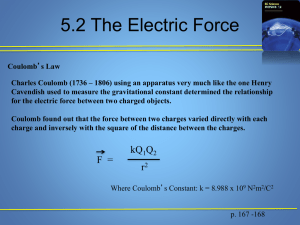Static Electricity
advertisement
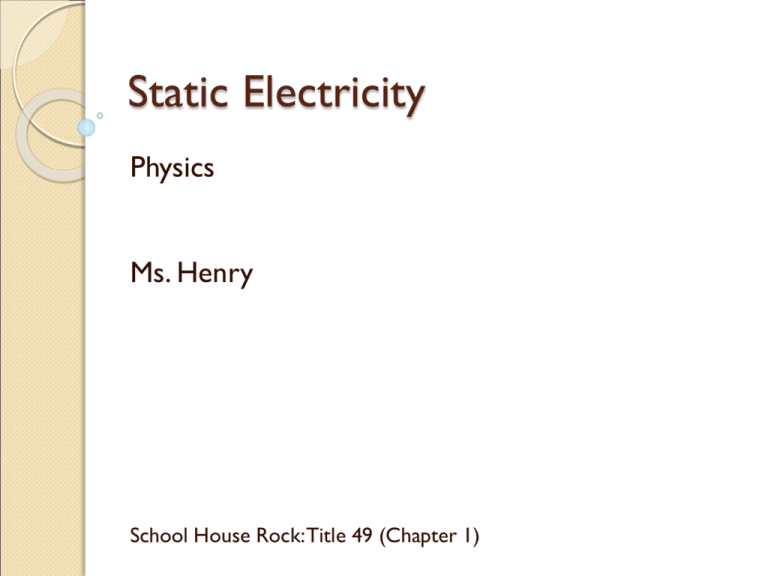
Static Electricity Physics Ms. Henry School House Rock: Title 49 (Chapter 1) Electrons Thank you Ben… Franklin came up with the convention of calling the 2 types of charges, positive & negative. Getting Charged… Group Name Paper Pick Up Michael H. Tyler I. Bri M. Gelatin Stalagmites Mitchell R. Matt S. Haydon C. Runaway Soda Can Alex L. Bobby A. Eric H. Swinging “Pith” of Death Austin K. Wade M. Elaine S. Dancing Bunnies Sarah C. Becca C. Jessica R. Swirling Vortex of Terror Zak N. Scott M. Cameron C The Electroscope Jake W. Tyler F. Julee L. Kaitlyn W. Within your groups. Pick one person to find your bin with your materials. Complete the instructions with your group. Fill out the front side of the worksheet as you work. Prepare for a very brief presentation to the class of your activity. Present. As other groups are presenting, you should be completing the back side of your worksheet. From our labs… •Two kinds of charges were not created alone, but in pairs. •Matter normally contains both charges, positive and negative. •Contact separates them. •Charge is conserved; or individual charges are never created nor destroyed. Positive and negative charges are separated through the transfer of electrons. Coulomb’s Law Electric Force depends on: ◦ Distance (r) ◦ Charge (q) K=9.0x109 N∙m2/C2 (when charges are measured in coulombs, distance in meters and force in Newtons.) Vector Quantity: needs a magnitude & direction •1 Coulomb = 6.24x1018 electrons or protons •Elementary charge: 1.60x10-19C (aka: Charge of a proton or electron) Electric Force Problems What are you given? What do you need to figure out? What are you going to use to figure it out? p. 550: Specific Problem Solving guidelines. Example A negative charge of -2.0x10-4C and a positive charge of 8.0x10-4C are separated by 0.30m. What is the force between the two charges? When does Coulomb’s Law apply? In general, where the size of the charge is small compared to the distance between them. The object is a sphere. When does Coulomb’s Law not apply? When the distribution of charge is farther from the test point than the size of the distribution itself. Homework p. 558 #26, 27, 33, 34, 36 p. 559 #52, 57
